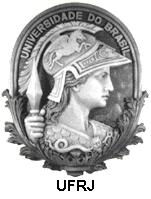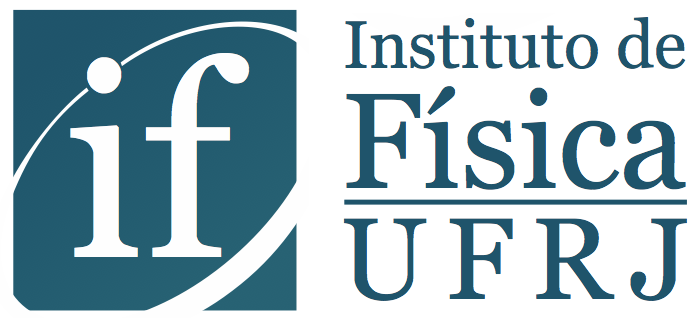Instructor(s): Prof. Natanael C. Costa
Email: natanael@if.ufrj.br
IF-UFRJ Course Number: FIW 727/827
As Taught In: 2021.2
Level: Graduate
Lectures:
3:00-5:00 pm on Mon. and Wednesdays at Zoom
Zoom Link: HERE

The first class will be Monday, Oct. 4th
Course description:
In the last decades, due to the increasing computer power resources, numerical methods have become an indispensable tool for the analysis of classical and quantum interacting systems. In view of this, the present course has the main goal to introduce state-of-the-art computational methods to investigate strongly correlated systems. Namely, we will cover mean-field techniques, exact diagonalization, and Quantum Monte Carlo methods to examine the properties of effective Hamiltonians, such as the Heisenberg, the Hubbard, and/or the Holstein models. Indeed, such numerical techniques are important tools for the development of scientific research in Condensed Matter Physics.
Syllabus:
1. Exact diagonalization methods:
1.1 Full diagonalization;
1.2 Lanczos Method;
2. Cluster Perturbation Theory;
3. Mean-field theory:
3.1 Hartree-Fock approach (restricted and unrestricted);
3.2 Cluster mean-field for spins;
3.3 Variational Cluster Approximation;
4. Quantum Monte Carlo Methods:
4.1 Introduction to Monte Carlo methods;
4.2 Trotter decomposition and World-line QMC;
4.3 Auxiliary field QMC methods.
Grading scheme:
10%: assignments
30%: seminar (there will be just a single seminar by student)
60%: final project
A: grade >= 8.0
B: 6.0 <= grade < 8.0
C: 5.0 <= grade < 6.0
D: grade < 5.0
The projects:
This should be a topic of your interest, by preference on a subject that is related to your Masters/PhD research project. I will make some suggestions about possible themes, but the final decision is yours. After we decide on the projects, we will add them here, on our website.
The final project should be a manuscript in a layout of a research paper (i.e., with Sections for Introduction, Methods, Results, and Conclusions). I may help you with the literature search.
- Victor Velasco: A QMC approach to electrons coupled to phonons
- Lucas Alves: Entanglement entropy in quantum spin chains
- Pedro Melo: The Su-Schrieffer-Heeger-Hubbard model: an ED approach
- Denis Neto: A Hartree-Fock approach for magnetic materials
- Denilson Júnior: A QMC approach for resistivity measurements
- Jadson Portela: A mean-field approach to the t-t’ Hubbard model
- Sebastião Jr.: An auxiliary field QMC approach to the extended Hubbard model
- Rodrigo Fontenele: The Rashba-Holstein model
- Andressa Silva: Higher-order correlations in cold atoms
Seminars:
- Victor Velasco: Finite temperature Lanczos approach –> 29.11.2021
- Lucas Alves: Density matrix renormalization group –> 13.12.2021
- Pedro Melo: Dynamical mean-field theory –> 15.12.2021
- Denis Neto: Introduction to Monte Carlo Method
- Denilson Júnior: Introduction to Langevin dynamics
- Jadson Portela: Stochastic series expansion QMC
- Sebastião Jr.: CPT+DQMC
- Rodrigo Fontenele: Greens’ function Monte Carlo
- Andressa Silva: Constrained path auxiliary field QMC
- ?? Bogoliubov-De-Gennes approach
Recommended bibliography:
There are several books and articles covering the contents of this course, and we will use many of them. Below you may find some references.
- F. Becca and S. Sorella, Quantum Monte Carlo Approaches for Correlated Systems, Cambridge University Press, Cambridge, England, 2017.
- R. R. dos Santos, Introduction to quantum Monte Carlo simulations for fermionic systems, Braz. J. Phys. 33, 36 (2003).
- J. Gubernatis, N. Kawashima, and P. Werner,Quantum Monte Carlo Methods: Algorithms for Lattice Models, Cambridge University Press, Cambridge, England, 2016.
- A.W. Sandvik, Computational studies of quantum spin systems, AIP Conference Proceedings 1297, 135-338 (2010)
- Eva Pavarini, Erik Koch, Dieter Vollhardt, and Alexander Lichtenstein (eds.), DMFT at 25: Infinite Dimensions Modeling and Simulation, Vol. 4, Verlag des Forschungszentrum Jülich, 2014.
- Eva Pavarini, Erik Koch, and Piers Coleman (eds.), Many-Body Physics: From Kondo to Hubbard Modeling and Simulation, Vol. 5, Verlag des Forschungszentrum Jülich, 2015.
- Eva Pavarini, Erik Koch, Jeroen van den Brink, and George Sawatzky (eds.), Quantum Materials: Experiments and Theory Modeling and Simulation, Vol. 6, Verlag des Forschungszentrum Jülich, 2016.
Video Lectures (in Portuguese)
- Aula 01 (Intro) – 04/10/2021
- Aula 02 (Full ED) – 06/10/2021
- Aula 03 (Full ED) – 13/10/2021
- Aula 04 (Full ED) – 18/10/2021
- Aula 05 (Lanczos) - 20/10/2021
- Aula 06 (Lanczos) – 01/11/2021
- Aula 07 (CPT – Intro) – 03/11/2021
- Aula 08 (CPT) – 19/11/2021
- Aula 09 (MFT) – 22/11/2021
P.S.: The slides and codes will be available soon.
Code (samples)
- Transverse field Ising model (chain) — Full ED No symmetries
- Heisenberg model (chain) — Full ED with Sz symmetry (adapted from Sandvik’s code)
- Hubbard model (chain) — Full ED with Sz and N symmetries
- Hubbard model (chain) — Lanczos with Sz and N symmetries
P.S.: Contact me if you want to know how to compile.



